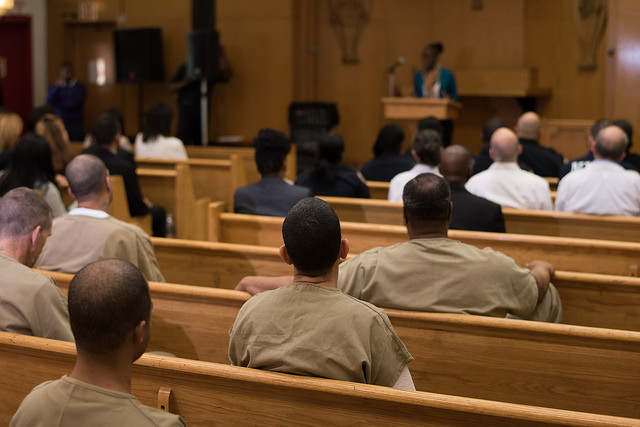Holding Polluters Accountable is as Important Now as Ever

(photo via the Governor's Office)
The summer season is in full swing, with New Yorkers flocking to weekend getaways across the state, from Coney Island to Long Island beaches to the Catskills and beyond. But it is critical that we remain vigilant as good stewards of our shared natural treasures. With environmental protections under siege from the current federal administration’s Environmental Protection Agency (EPA), it is imperative that New Yorkers understand and exercise their civil justice rights to protect their communities and hold polluters accountable.
For years, our ability to enjoy and access New York’s natural treasures has been made possible in part by the environmental advocacy fostered by many committed individuals and the state’s civil justice system, which allows victims to hold negligent polluters financially accountable for adverse health impacts, drinking water contamination, and property damage.
From the Gowanus Canal to sports fields in Red Hook and the ongoing public health crisis in Hoosick Falls, we must remain strong in standing up to bad actors and polluters by protecting and exercising our civil justice rights, particularly in the absence of effective federal oversight.
New York State’s civil justice system provides people with the ability to hold companies and industries responsible when their actions put the public at risk. In a court of law, people injured by negligence and reckless endangerment have been able to address corporate transgressions and hold bad actors accountable.
For communities and residents up against powerful entities with overwhelming resources, the civil justice system often is the only way to get big, influential interests to do the right thing. Ordinary, hardworking New Yorkers are no match for a well-funded public relations campaign and a skilled team of professional lobbyists.
And for victims of dangerous, debilitating diseases and conditions caused by reckless pollution, the civil justice system serves as a mechanism to account for onerous and often overwhelming medical costs. It often spurs meaningful legislative action and oversight as well, to prevent further harm.
Over the past century, the civil court system has shaped environmental reform and delivered justice to communities time and time again. In the 1940s and 1950s, Hooker Chemical Company used a property in Niagara Falls known as Love Canal as a dumpsite for toxic chemical waste and contaminants.
Two decades after the town of Niagara Falls took over the land and developed it for residential purposes, homeowners noticed a suspicious black fluid flowing out of the canal, leading to widespread discovery of its use as a dumpsite, as well as the pollution’s harmful health effects on the community, including higher rates of miscarriage, birth defects, and leukemia.
Activists and residents were outraged at the company’s failure to consider the impacts of their actions or even to bother informing the community years later of what was done. Executives were never jailed or held accountable in a criminal court – but they were forced to pay hundreds of millions of dollars in settlements with the EPA and affected residents.
The Love Canal calamity is widely viewed as a catalyst for stricter federal regulations that were subsequently put in place to protect the environment and our communities.
Fast forward to today, in Hoosick Falls, an effort is in motion to hold Saint-Gobain Performance Plastics and Honeywell International, Inc., accountable for dangerous contamination of the water supply—an important step toward bringing justice to this community and its residents.
There should be no question that any companies that pollute our communities and poison our children will be identified, held accountable, and forced to right their wrongs. We must always be vigilant.
Our communities, the health of our neighbors and loved ones, and our prized state environmental treasures must be protected. In an era of federal inaction, a strong civil justice system remains the cornerstone of an active and engaged public and empowers all of us to look out for and protect one another.
***
Matt Funk is president of the New York State Trial Lawyers Association. On Twitter @_mattfunk.
***
Have an op-ed idea or submission for Gotham Gazette? Email This email address is being protected from spambots. You need JavaScript enabled to view it.
New York City Must Protect Due Process for All in The Trump Era

(photo: Michael Appleton/Mayoral Photography Office)
Under the Trump administration, we are seeing escalated attacks against immigrant communities across the country. Raids, workplace sweeps, and the detention of Dreamers, asylum seekers, and other immigrants have led to the daily separation of families.
More than any other city, New York City has been proactive in responding to these attacks. At the center of our efforts to support our immigrant community is the New York Immigrant Family Unity Project (NYIFUP) — the nation’s first universal legal defense program for immigrants facing deportation.
Over the last four years, NYIFUP has set the national standard for protecting the due process rights of immigrants and keeping families together.
Research shows that detained immigrants with access to legal counsel have a 48% probability of success in immigration court, as compared to 4% without access to counsel.
Moreover, the New York City Council has made significant investments in complementary initiatives, including providing representation to immigrant children, survivors of domestic violence, asylum seekers, and those applying for U.S. citizenship.
Our comprehensive legal services effort ensures income is not a barrier to obtaining quality, trustworthy representation for many immigrants at risk of deportation.
Unfortunately, Mayor de Blasio has dangerously limited due process to many more at risk of deportation by quietly implementing a policy that excludes immigrants, including veterans, with certain convictions from qualifying for representation through our legal defense programs.
New York City already mandates universal appointment of counsel in Family Court and Housing Court. Appointed counsel in those courts is based on financial need, not on a person’s criminal record.
A criminal record may, at times, be a factor for a judge deciding the merits of the case, but it’s never a factor in deciding who deserves an attorney. We must have the same standard in our immigration courts that we do in family and housing.
Elected officials, especially those who proclaim a progressive identity, should not fuel the nation’s deportation machine by limiting due process at a time like this.
Instead, we have a duty to do everything in our power to ensure a level playing field in a system that is heavily weighted against people of color and immigrants, who all too often are ensnared by a system set up to criminalize them.
The mayor’s approach is dangerous. We reject his exclusionary policy and urge him to restore our legal services programs to universal representation models without discriminatory exclusions.
Our legal services programs do not determine who gets to stay in the country and who doesn’t — that is the role of our courts. Instead, our publicly funded programs help immigrants understand the proceedings they are in, as well as their legal rights and obligations.
Making certain individuals ineligible for legal services strips them of a meaningful opportunity to have their day in court — leaving immigrants subject to deportation to countries where their lives may be at risk and allowing for the senseless separation of families.
We would do well to remember the words of retired Immigration Judge Paul Grussendorf, who explained, “it is un-American to detain someone, send them to a remote facility where they have no contact with family, place them in legal proceedings where they are often unable to comprehend, and not to provide counsel for them.”
U.S. Supreme Court Justice Louis Brandeis once said that states are the laboratories of democracy. We add that cities are the spark of genius that drives innovation in our democracy.
New York City has led the way in protecting the rights of immigrants. We must expand on that progress — not turn back. Other cities across the nation are looking to us as beacons of progress.
As descendants of immigrants and LGBTQ members of the New York City Council, and as New Yorkers, we are committed to eradicating inequality, discrimination, and barriers to fairness in our great city.
We are committed to universal representation and due process for all immigrant New Yorkers.
Justice is on our side.
***
Carlos Menchaca and Daniel Dromm are members of the New York City Council, representing parts of Brooklyn and Queens, respectively. Menchaca chairs the Council’s immigration committee, while Dromm is chair of the finance committee. On Twitter @cmenchaca and @Dromm25.
***
Have an op-ed idea or submission for Gotham Gazette? Email This email address is being protected from spambots. You need JavaScript enabled to view it.
It’s Time for Airbnb to Share Its New York Listings

(photo: Sofie Hecht / Gotham Gazette)
Teaching children to share is difficult. Teaching Airbnb to share is impossible. Airbnb’s version of the “sharing economy” means more profits for the company and less affordable housing for the rest of us.
Airbnb repeatedly allows and provides cover for commercial operators to break the law, turn our homes into hotels, and parachute into our communities to make a profit, pilfering apartments along the way. Instead of working with enforcement officials to curb illegal listings, the company uses every legal maneuver in the books—fighting subpoenas and refusing to share data—to take more and more housing out of our communities.
Airbnb could easily disclose data on its listings. It does so in San Francisco, Chicago, New Orleans, and even China. But it refuses in New York. Why? Because it’s by far the company’s largest U.S. market, where it makes hundreds of millions more than any other U.S. city.
It even goes as far as shielding unscrupulous commercial operators that evict tenants from rent-stabilized apartments just to protect its biggest money makers.
And that’s on top of fueling gentrification and contributing to rising rents around the city as a result of stripping the long-term housing market of thousands of units.
Again, that’s not sharing. That’s taking. And that’s why the New York City Council’s efforts to rein in an unaccountable, deceitful corporation by forcing Airbnb to disclose the addresses of its listings to enforcement officials needs to happen, and happen soon.
Here’s the thing about Airbnb: the company thinks the rules don’t apply to it. In cities across the country and, in fact, across the globe, there has been a reckoning with communities and local governments passing sensible regulations to protect residents, only to see those laws ignored by a corporation that has built assets totaling more than $30 billion. And there are few cities that know this better than New York.
In 2010, state lawmakers modified the 1929 Multiple Dwelling Law to ban short-term rentals in New York City apartment buildings for fewer than 30 days while the primary tenant is not present to ensure the “sharing economy” did not close the door to affordable housing on actual long-term tenants, or create quality-of-life issues in buildings not zoned for hotel and commercial activity. It was strengthened in 2016 to allow for more enforcement but Airbnb continues to throw up roadblocks.
The company’s refusal to follow that law has allowed tens of thousands of illegal entire home/apartment listings to proliferate across the city in the midst of an affordable housing crisis when New Yorkers needed those apartments the most.
Just last year alone, Airbnb generated $435 million in revenue from illegal listings in New York City, according to the School of Urban Planning at McGill University. That’s 435 million reasons why Airbnb cannot be trusted to police its own website, and why New York officials must step up, yet again, to pass additional regulations to stop Airbnb from breaking our laws.
Like the stories we have heard in cities such as San Francisco, Boston, Washington, D.C., New Orleans, Chicago, Barcelona, Paris, Toronto, and Amsterdam, to name a few, the wealthiest among us have come to view Airbnb as a tool to make millions by turning homes into hotels and reducing available housing stock for everyone else. In New York, this has resulted in 13,500 units being removed from the housing market, according to the McGill report, making it even harder to find an available and affordable place to live.
Make no mistake: despite the company’s best attempts to distract from the truth, the legislation being proposed by the New York City Council would have zero effect on the nice families in Airbnb’s commercials using the platform to make ends meet. Regular folks sharing their homes legally and responsibly are not the problem, and they are also not the norm when it comes to Airbnb. The millions of dollars the company invests in slick marketing and expensive lobbyists to peddle their ongoing misinformation campaigns does not change the fact its platform is overrun by unscrupulous landlords subverting our laws to make extra bucks at the expense of regular New Yorkers.
Why should Airbnb be rewarded for having the track record of a greedy corporation that refuses to follow the law?
In San Francisco, when Airbnb refused to police its site of illegal listings, the city enacted regulations forcing Airbnb to disclose the addresses of its listings, sending a strong message to bad actors and serial lawbreakers that they would no longer get a free pass to flout the law and profit from illegal activity.
Almost immediately, Airbnb listings in San Francisco dropped by more than half and thousands of apartments returned to the long-term market for permanent residents.
Now it’s New York’s turn.
No corporation should get to pick and choose what laws it follows and what laws it breaks in order to make a profit on the backs of middle-class families.
The New York City Council and Mayor de Blasio must see through Airbnb’s lies and deceit and act once and for all to protect tenants by swiftly passing legislation requiring Airbnb to share the addresses of its listings so enforcement officials can protect our communities and affordable housing.
***
Tom Cayler is a member of the West Side Neighborhood Alliance in Manhattan.
***
Have an op-ed idea or submission for Gotham Gazette? Email This email address is being protected from spambots. You need JavaScript enabled to view it.




